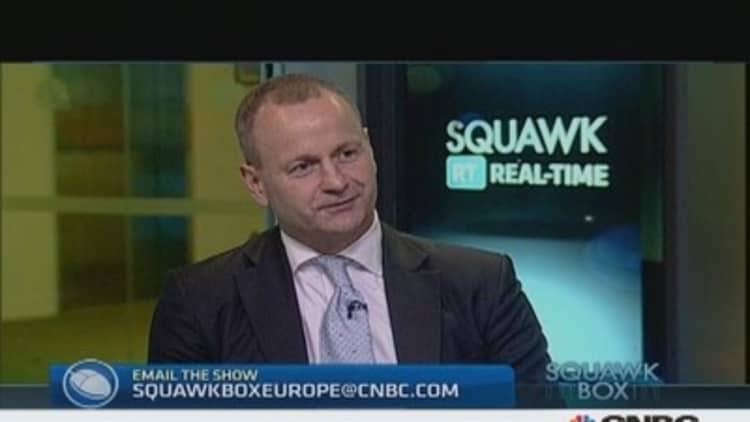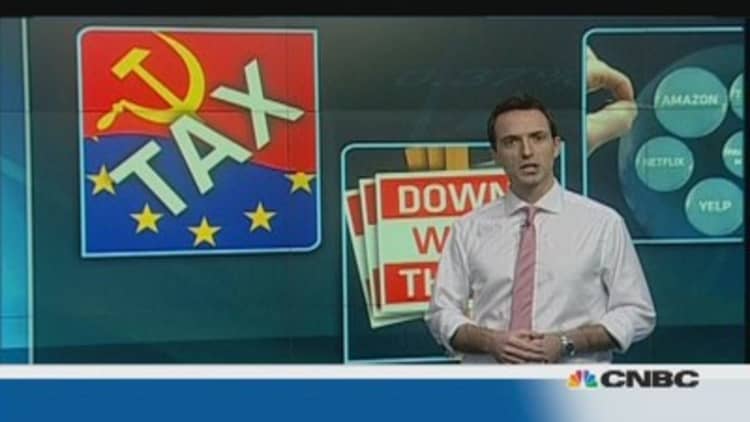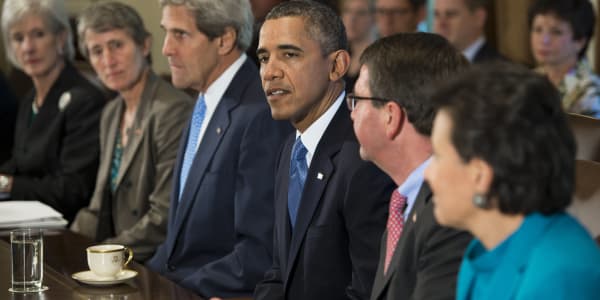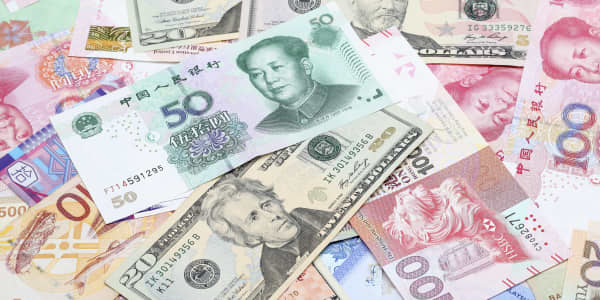
Political turmoil in Europe, a crash in oil prices to $80 a barrel, U.S. deflation and the popping of the tech bubble as just some of the predictions that Saxo Bank has offered for the coming year.
December may not usually known as "silly season" but the brokerage firm has detailed its most "outrageous" outcomes for 2014 and at the very top is a Soviet-style economic model for Europe.
Saxo Bank admits the "probability of any one of the predictions coming true is low" but goes on to say in a statement accompanying the roll-call of extreme outcomes that they are "based on a feasible - if unlikely - series of market and political events".
In a report released Tuesday, Steen Jakobsen, chief economist at Saxo Bank said a worrying trend of weak consumer prices will continue in the euro zone along with a lack of growth. This will lead to the European Commission, the 28-country European Union's executive arm, tabling a working group that will focus on different wealth taxes for anyone with savings in excess of $100,000, he said.
(Read More: How the 2020s could see Europe put the US in the shade)
"We have gone full circle back to a Soviet Union model," Jakobsen wrote. "It will be the final move towards a totalitarian European state and the low point for individual and property rights."
While Jakobsen's prediction may seem extreme, they are not without foundation. Back in April, economic advisers to Germany's Chancellor Angela Merkel pushed for better-off households to pay towards the cost of any future euro zone bail-outs. This was followed up in September with a 40,000 strong rally in Germany with people calling for the introduction of taxes on wealth and financial transactions.
"We are dangerously close to having an economic model that, in the year of the 25th anniversary of the fall of the Berlin Wall, reminds us more of the failed experiment known as the Soviet Union. Let's stop running in circles, kicking the can and pretending that quantitative easing is anything but an economic addiction and finally move forward," he said.
Jakobsen's main advice is buying hard assets and suggests buying an exchange-traded fund that tracks the gold price. But investors will face much more than economic reforms, according to Jakobsen and his team.
(Read More: CFOs warn on froth in US stocks, tech, bitcoin)
Also among the Saxo Bank analysts' extreme predictions are: zero growth for Germany and the U.S. next year, with deflation a problem due to interest rate rises and a lack of wage increases. They also see a sharp fall for technology stocks like Amazon, Netflix, Twitter, Pandora Media and Yelp and an oversupply in the oil markets.
For Jakobsen, it is political turmoil in Europe that remains at the forefront of his fears, which he sees boiling over in late May with fresh European elections.
Citizens across the continent will take to the ballot boxes to vote on the make-up of the next European Parliament – which is one arm of the EU's legislative function. Current polls suggest fruitful gains for Eurosceptic groups like the U.K. Independence Party and the Party of Freedom in the Netherlands. Saxobank's Jakobsen sees an anti-EU alliance becoming the largest group in parliament with a majority of more than 275 seats.
(Read More: US recession is nigh...and the Fed can't stop it: SocGen bear)
"Sweeping the traditional political groups out of power, the new European Parliament chooses an anti-EU chairman and the European heads of state and government fail to pick a president of the EC (European Commission), sending Europe back into political and economic turmoil," he said.
This drab assessment of Europe's prospects is at odds with key data released recently which has showed the euro bloc has finally managed to battle its way out of recession. Andrew Lillico, the director of consultancy group Europe Economics told CNBC in early December that the vast restructuring in the euro zone is reason for optimism and even predicted that it could be next economic superpower in the coming decade.

Following the financial crash of 2008, nations across the globe have been busy restructuring and rebalancing their economies. Substantial sovereign and bank debt led the euro zone to fall into a prolonged recession in 2011 as the extent of its problems became fully aware.
Mario Draghi, the president of the European Central Bank (ECB) has previously ruled out Fed-style asset purchases due to the lack of capital markets seen in the U.S. But the ECB has been busy keeping interest rates low and using refinancing programs to pump liquidity into European lenders in an effort to fight the possibility of deflation.
The euro zone's unemployment rate stands at 12.1 percent, according to Eurostat, compared with levels of 7 percent in 2007. Debt-to-GDP (gross domestic product) ratios this year are expected to be 95 percent for the Euro area, according to the International Monetary Fund.
(Read More: Take cover! Bond market 'hell' could be on the way)
Jakobsen believes the world's central banks and government policymakers are running on empty and avoiding real reforms that will allow the economy to move forward.
"They have been reduced to 'talking the market higher' or simply going to church to pray for better times ahead," he said.
"This isn't meant to be a pessimistic outlook: looking back through history, changes have always come as a result of the thorough failure of the old way of doing things."
— CNBC.com's Matt Clinch. Follow him on Twitter @mattclinch81





